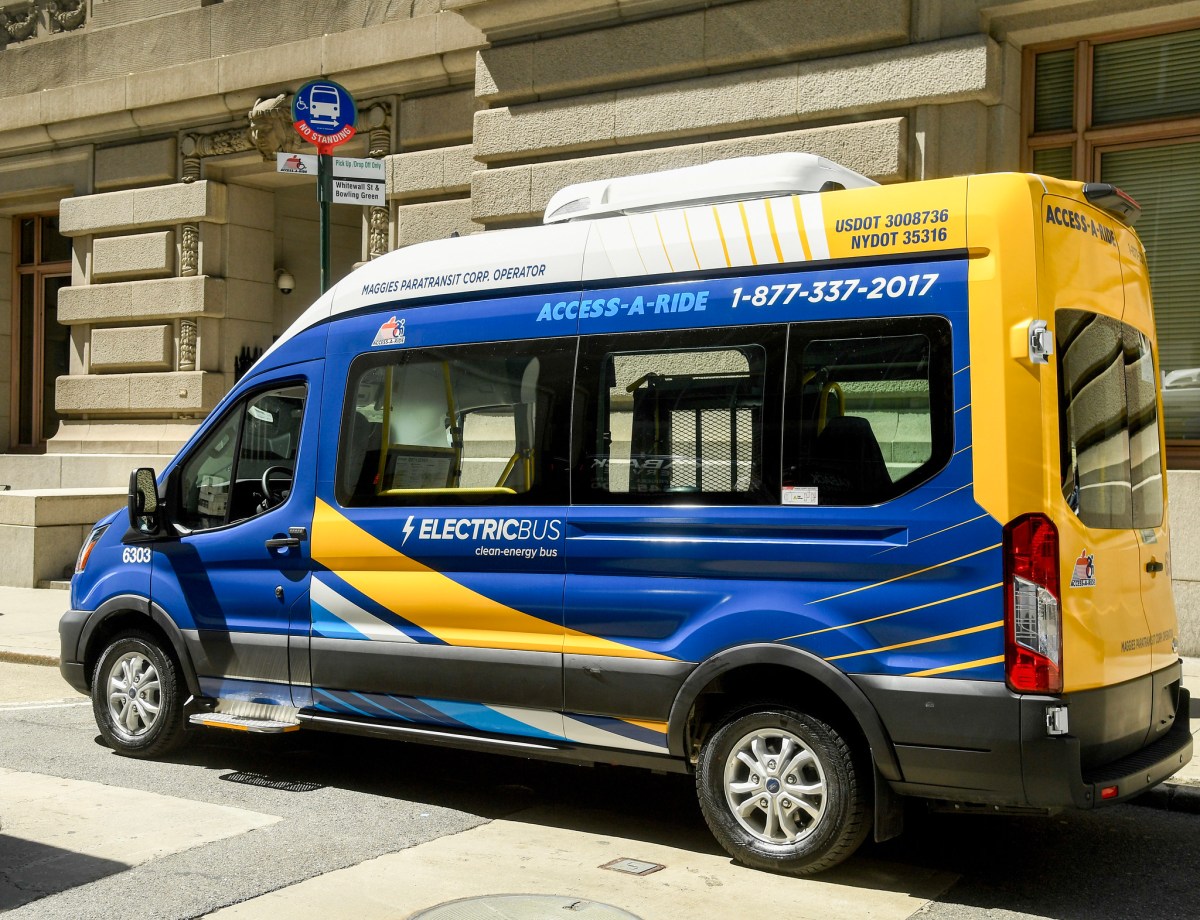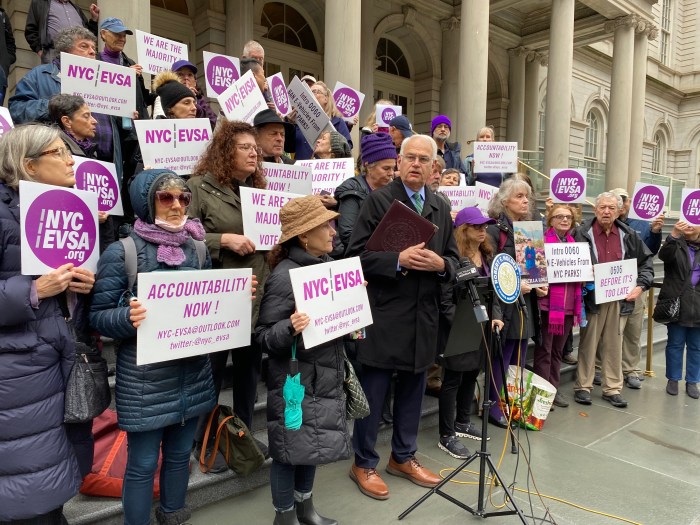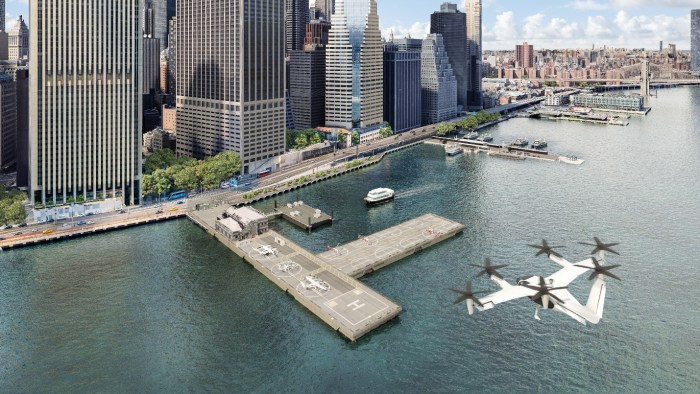The MTA on Monday unveiled the first electric van in its Access-a-Ride paratransit fleet, beginning a pilot for what would ultimately be a transition of its 1,100-vehicle fleet to zero-emission technology.
The blue, white and yellow van, modeled on the Ford Transit and debuted in Lower Manhattan on Monday, is the first of what will be an order of 15 electric vans zipping around the five boroughs this year to provide transit service for disabled New Yorkers, all sans carbon emissions.
“It’s an amazing day to show how we continue to go above and beyond for accessibility at the MTA,” said Quemuel Arroyo, the MTA’s Chief Accessibility Officer. “I am so excited to try this new vehicle out.”
Only about 30% of the subway system is accessible for people with disabilities. The MTA settled lawsuits in 2022 that will require the agency to make 95% of stations accessible by 2055. In the meantime, Access-a-Ride remains vital for the nearly 1 million New Yorkers with disabilities.
More than 30,000 trips are recorded on Access-a-Ride on an average weekday, and unlike the subways and buses, ridership is consistently higher today than it was before the COVID-19 pandemic.
The MTA touts paratransit customer satisfaction from its periodic rider surveys at about 79%, and on-time performance is above 90%, the agency says. The MTA considers arriving within 20 minutes of a scheduled booking as “on-time,” though this is better than the “industry standard” of 30 minutes.
Still, the MTA could be in for tough times for Access-a-Ride. Last month, a federal judge allowed a lawsuit to proceed alleging Access-a-Ride violates the constitutional right to equal protection for disabled MTA customers, a point which had previously been taken up by the Justice Department.
District Court Judge Jessica Clarke disagreed that paratransit’s scheduling system — which requires riders book trips at least a day in advance — violates equal protection, but was more sympathetic to the argument its routing system does so, The City reported. Access-a-Ride trips can often take riders well out of their way as drivers pick up other passengers in further reaches of the city.
Riders have also complained of the MTA’s curtailing of Access-a-Ride’s e-hail program in the pilot for its second phase, which allows riders to request a trip on-demand like a rideshare app. Phase 2 is seeing the price of the e-hail fare go up and puts limitations on the number of trips per month before riders have to fork over market price. The MTA says the limitations are necessary to expand the program beyond its prior constraints.




































